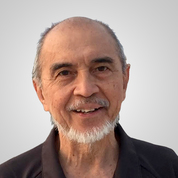

In one of the most inspired life stories of great English poets, John Milton’s struggle to overcome adversity provides a lesson for our times. Struck totally blind at the age of 44 in 1652, Milton refused to allow this handicap to prevent him from achieving his dream to write.
Milton authored one of the greatest epic poems of the ages, “Paradise Lost,” which we often remember when we come across obdurate and self-absorbed populist political leaders who abound today and whom we associate with his unforgettable line: “better to reign in hell, than serve in heaven.”
Dealing with disruption
A few years before in the mid-1650s, while grappling with his sudden loss of sight, he penned the last line of a sonnet that seem most relevant to a world in quarantine: “They also serve who only stand and wait.” (John Milton, Sonnet 19, “On His Blindness”)
In crisis periods like ours today, a natural urge is to go out and do something, “anything to help”— a phrase that naturally comes to mind. Thus, when we are asked to keep still and stay home, we may sometimes feel bewildered and puzzled as to why shat we are asked to do instead is to isolate and keep distance. It is time to remind ourselves that we may also serve though what we are asked to do at the moment is to stand and wait. (READ: Luzon lockdown: What are the do's and don'ts?)
Confronted by a dangerous and stealthy virus that can be transmitted unknowingly among us, what we are tasked today is to build community defenses by preventing the virus to travel from one to the other by creating physical distance and the natural contact that we have been accustomed to all our lives. We somehow feel blind-sided, but rather than curse the enforced helplessness we seem to have been subjected to, perhaps it is important to envision what a world that is chastened and contrite can become – which in the end can be a better reflection of who we truly are.
Move towards a more mindful nation
As we retreat to our homes and behold cities and towns shrouded in silence, and as we contemplate our disrupted lives, we can become more mindful – aware of ourselves, our families, and loved ones. We can reflect on the way we have lived and the way we have dealt with others and with nature – the environment that even now seems to breathe better, bursting with blue skies if we care to look out our windows or if we have access to open spaces. Living more mindful lives in a world different from the past seems to be a worthwhile outcome of the crisis that now engulfs us. (READ: [OPINION] Let’s not forget the poor during the coronavirus pandemic)
Encourage a more caring people
As we find a little more time on our hands, many of us are given more opportunities to reach out to others by all means at our fingertips – Skype, Viber, Whattsapp, Zoom, mobile phone. We are able to renew interrupted conversations and recall moments when we may have cared more for each other. A more caring people in a less frenzied world seems to be another possible outcome of this unprecedented global lockdown.
Build a more hopeful future
As we find ourselves at the end of our wits, unable to answer all questions, uncertain about our futures, we turn to our inner resources, to prayer and the realm of the spiritual, to find meaning in the loss of friends, of loved ones, or someone we may have known who have become victims of the serious illness that have suddenly descended in our midst like a thief in the night.
We, however, refuse to give up and succumb to fear, and instead ground ourselves in our belief that we have the capacity to work together to overcome the odds and build a more hopeful future. As human beings, our collective task is to keep hope alive, for the sake of coming generations.
When this nightmare finally comes to an end, we will wake up to a radically changed world. It can never be the same again.
But the way our world will become largely depends on the way we respond now, on the ways we can work together though separated by layers of distancing, on how we can open our eyes and hearts to the things that really matter in our lives: family, friends, people, community, nation, and a healthier world.
It will depend on how we nurture the values that truly count in a world without walls: generosity, trust in one another, love, faith in the future, and in the Almighty who is Lord of History. – Rappler.com
Ed Garcia is a founder of one of the country’s early non-violent movements, Lakasdiwa, during the First Quarter Storm in the 1970s. Inspired by the philosophy of Gandhi’s non-violence and Martin Luther King’s campaign for civil rights, he was jailed for engaging in civil disobedience. He later studied in Latin America and worked with Amnesty International in the UK.
Upon his return to the country, he joined Ka Pepe Diokno, JBL Reyes, Randy and Karina David in the formation of KAAKBAY. Participating in the efforts of citizens to mobilize against the dictatorship, he was later tasked to be a framer of the 1987 Constitution. He taught political science at the UP, Latin American studies at the Ateneo, and is consultant on the formation of scholar-athletes at FEU.